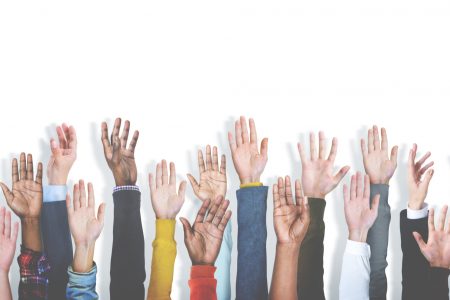By Patrick J. Kennedy
The U.S. is facing its worst public health crisis in nearly a century. If we fail to think big in a coordinated, strategic response to COVID-19, our communities will be overwhelmed with disastrous long-term consequences.
A gathering tsunami of mental health and substance use disorders stemming from social isolation, unemployment, grief, and skyrocketing anxiety could soon flood our already overwhelmed health care system.
Even before the pandemic, historic rates of overdoses and suicides were devastating families coast to coast. Millions depend on regimented treatment services and programs that have either been interrupted or halted due to social distancing protocols.
What will happen as more and more people turn to substances to self-medicate from stress, instability, and/or untreated mental health disorders? How will people cope if the unemployment rate hits 32%, as predicted by economists at the Federal Reserve, a level not seen since the Great Depression? Sixty-three percent of respondents to a recent McKinsey survey reported feeling anxious or depressed in the past week—and suicide hotlines are already seeing a surge in calls. We ignore these ominous warnings at our own peril.
Minor expansions of existing federal programs are not up to task. We need to think big, inspired by great achievements of the past, to build a new infrastructure of care in this country—something that will address the fallout of COVID-19 while putting Americans back to work.
During the Great Depression, President Roosevelt created two organizations that allowed people to serve their country in return for financial assistance. Members of the Civilian Conservation Corp (CCC) planted more than three billion trees and constructed trails and shelters in more than 800 parks nationwide over a span of nine years. Members of the Works Progress Administration (WPA) built more than 4,000 new school buildings, erected 130 new hospitals, laid roughly 9,000 miles of storm drains and sanitary sewer lines, built 29,000 new bridges, constructed 150 new airfields, sponsored projects in the arts, and more over a span of eight years.
Similar to how these programs enriched our country while providing modest financial assistance to many people in need, a U.S. Recovery Corps civil response organization could be added to the existing National Service Act and be focused on repairing and expanding our country’s mental health and addiction care infrastructure, specifically in response to COVID-19. It would represent only part of a much broader mobilization—a “Marshall plan” of sorts, created to restore our society through funding that far exceeds what mental health advocates have ever envisioned.
Modeled on AmeriCorps, which supports 75,000 members each year with only $550 million in funding, $1 billion in funding for the Recovery Corps could support roughly 135,000 members annually. We could immediately draw from more than 7,000 Peace Corps volunteers who, as a result of COVID-19, were recently recalled from overseas with no mission to serve.
Additional members of the Recovery Corps (e.g. unemployed or underemployed mental health professionals, advocates, unemployed project management professionals, unemployed service industry or retail workers; 2020 graduates unable to find work) could be trained to assess the need for treatment in communities across the nation and facilitate connections to certified addiction treatment counselors and mental health providers; staff crisis text/phone lines and suicide prevention initiatives; connect providers to critical information about topics such as telehealth and medication-assisted treatment (MAT); educate people about parity laws; facilitate supportive housing efforts; mobilize peer support networks to provide mentoring and training/employment opportunities; and, network a continuum of care for people recently discharged from emergency rooms, jails, and prisons.
Additionally, special divisions of the Corps could work in concert with clinicians to serve populations that are more likely to experience Post Traumatic Stress Disorder (PTSD), such as health care professionals, first responders, and other front-line workers. Focusing attention on our broken U.S. mental health and addiction care system would serve as a catalyst for long-term change.
Finally, if we fail to address the mental health and addiction implications of COVID-19, the economic consequences alone could stifle recovery efforts. The World Health Organization estimated that in 2019, depression and anxiety cost the global economy $1 trillion per year in lost productivity. Imagine the impact in 2020 and beyond if mental health and addiction are pushed to the wayside.
People are actively looking for ways to help the country respond to COVID-19. And so many have been personally touched by addiction and other mental health disorders. Congress should give them an opportunity to help themselves, their neighbors, and society at large by facilitating treatment strategies and advancing the much-needed integration of physical health and mental health care. We all have a role to play in making sure our country is not caught off guard a second time. Let’s get to work.

